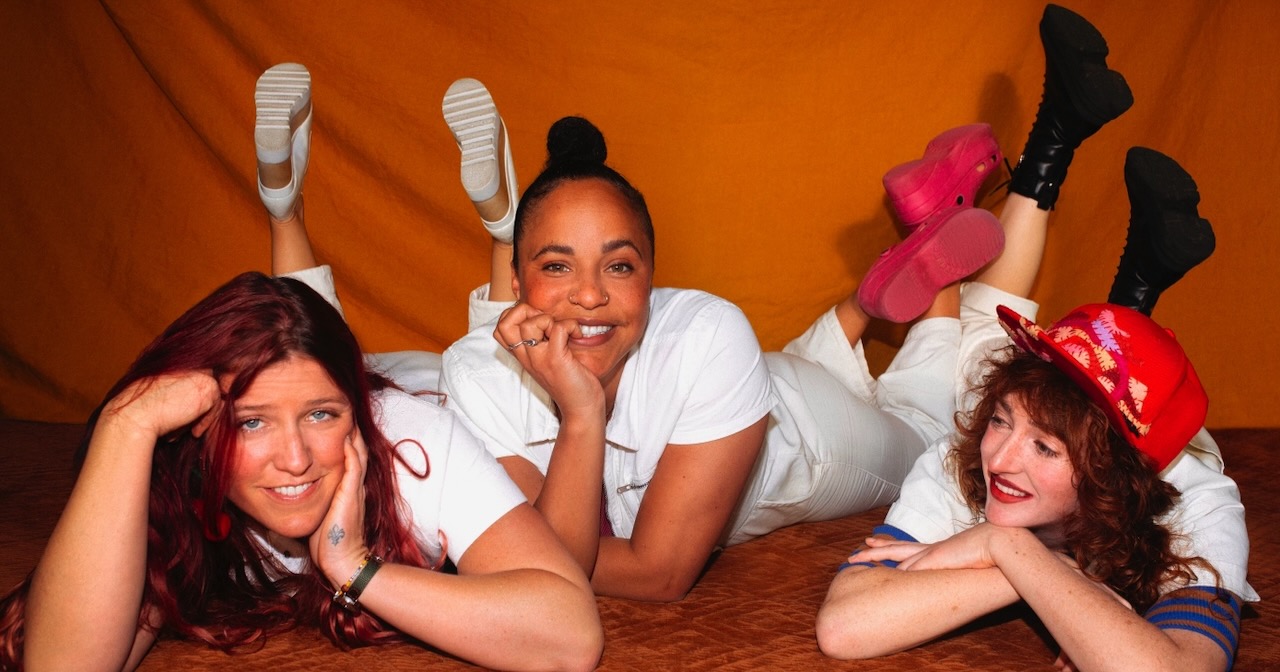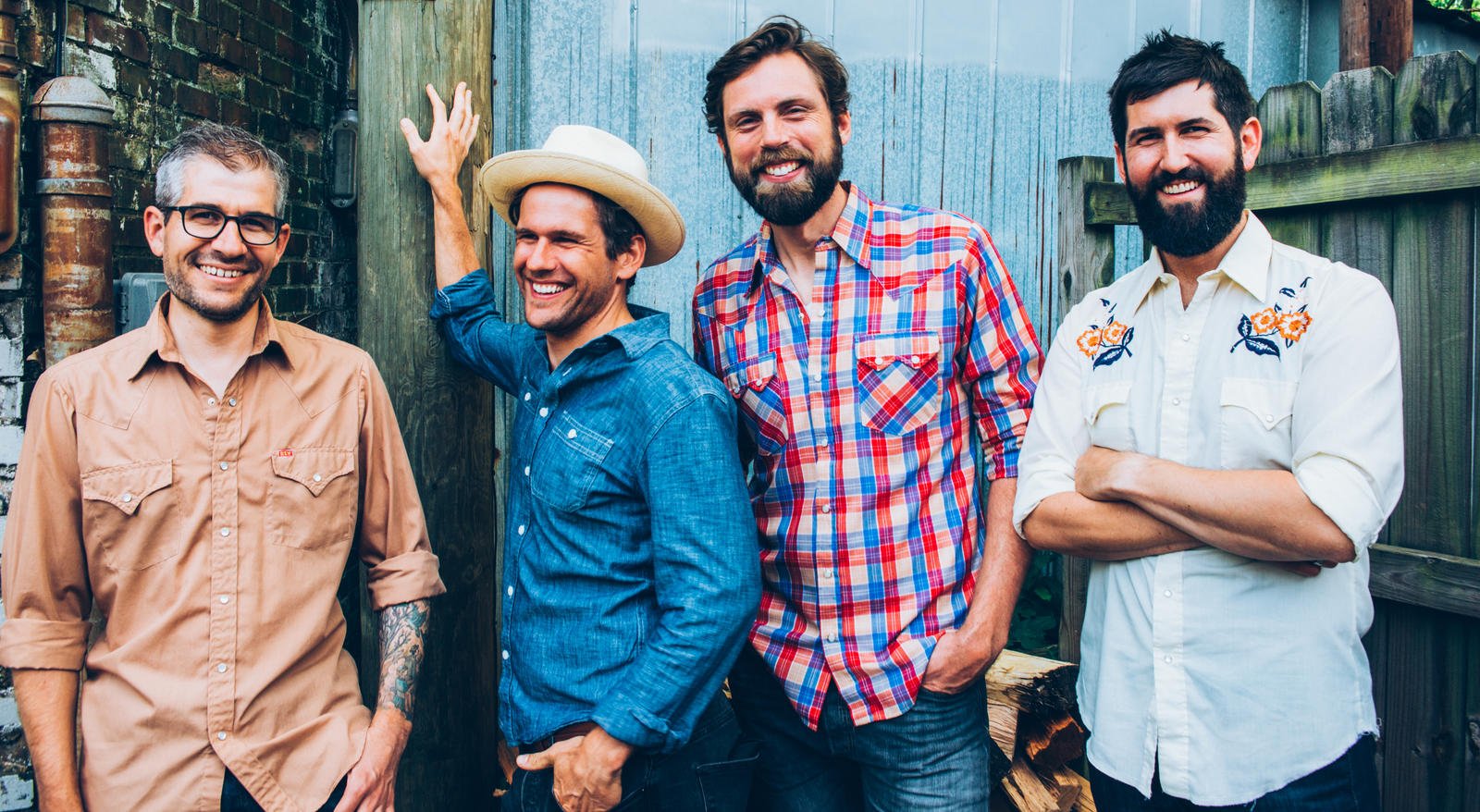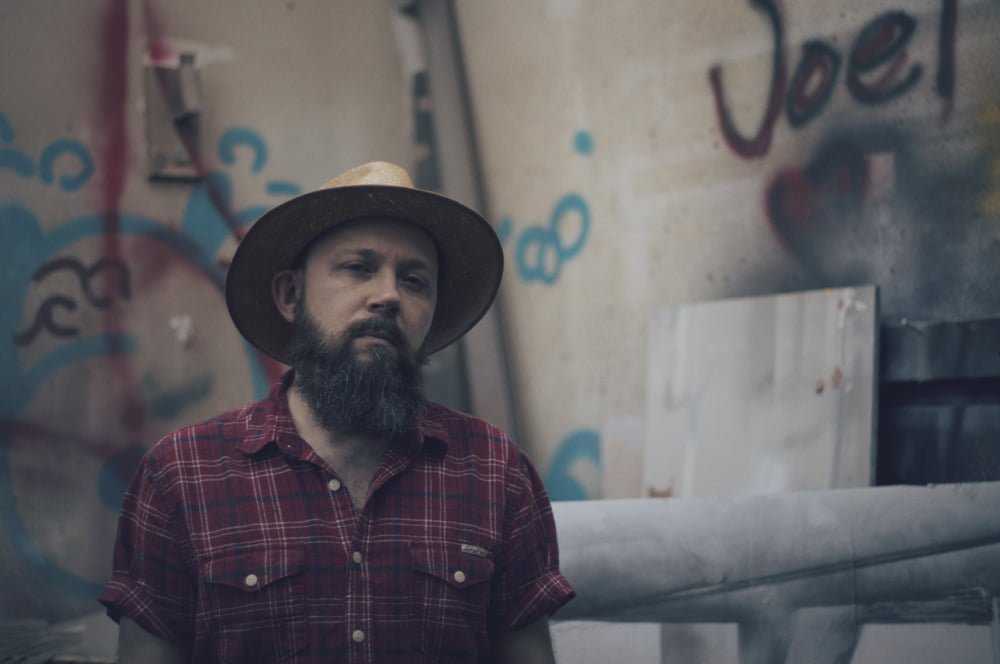Northern California folk-rock trio Rainbow Girls have always been committed to a grassroots approach to their band. Despite amassing a large community of fans, they remain an entirely independent and self-described mom-and-pop shop. Their new album, Welcome to Whatever (released in early December), spans a broad range of genre references and topics, but is rooted in the trio’s attitude of stubborn tenacity and joyful resilience – in the face of gentrification, capitalism, racism, and a generally challenging world.
In an industry which largely favors solo professional efforts over more complex group dynamics, Rainbow Girls have flourished over more than a decade of playing together and they remain a close-knit family. Most recently, the band has been nominated for Folk Alliance International’s Album of the Year award.
Curious to know more about how they have been able to make their collaboration work for so long and to such a beautiful end, BGS reached Vanessa Wilbourn, Erin Chapin, and Caitlin Gowdey via email to chat about the new album and how they feel about being a hold-out band in Northern California, when a lot of the region’s artistic class has been pushed out due to expense.
I loved reading about how you formed as a band and how long you’ve been playing together. Now that you’ve established yourself as a professional unit, how do you see your different roles in the band musically and personally? Who does what?
Vanessa Wilbourn: In terms of music, for the last few years we have tended to write individually. Once the idea has taken its initial form, its writer will bring the bare song to the collective. At times, the songwriter will have a clear idea for some or all of the vocal and/or instrumental parts. Other times, the song will be shared in its raw form and we as a collective will work to compose instrumental and vocal parts and arrange the song.
In terms of our business, we all play our parts. Our band is in every way a mom-and-pop shop. Mom, who is our best friend/live-in manager [Hannah Spero], keeps all of it together. She does the hard work of making sure we can keep the doors open. Dad, who is Erin, along with the support of mom, makes sure people know that we’re the best place in town for a good laugh and cry. He does Everything Internet plus a billion other things. Sis, Caitlin, does all of the design work; the albums, the merch, the promo material. Bro, Vanessa, runs our store. She makes sure that all of Caitlin’s designs make it on to shirts, hats and LPs so that our fans can have a piece of the pie.
In terms of interpersonal dynamics, we’re a family – so you know how that goes.
Friendships shared over formative years are special. How do you feel that you’ve seen one another grow and change since being students at college together? How has the band unit been there for you as people?
Our sweater game has immensely improved, because we live further north now.
We’re all better at putting on lipstick and I guess we’re also better at writing songs.
Erin used to be the blind one, but now it’s Caitlin.
I read that you have done extensive traveling and touring in Europe. What are some of the main differences you’ve found between touring in Europe versus the U.S.?
Caitlin Gowdey: We love where we come from, but boy howdy it’s wild how much better touring in Europe is. First of all, you can confidently eat any sandwich at any gas station and it’ll be a solidly good sandwich. Secondly, most major cities in Europe have bigger budgets for music and art, because it’s a larger, more embedded part of the culture.
Artists just generally get paid more, no matter where you’re playing. If you play a show at a venue they feed you and give you somewhere to stay as a part of the deal. If you’re a busker playing on the street (which we were for many years), there’s an understanding that you’re adding to the romantic atmosphere for tourists, and a respect that comes with that. More cities are designed for foot traffic, and people are just wandering around looking at giant clocks and waiting to be serenaded. We’ve met dozens of full-time buskers who sign up and clock in to the same couple spots every day and make a good amount of money. It’s kind of mind boggling.
So far, the only thing we’ve found about being a musician in Europe that’s worse is having to pay to use the toilets at a highway rest stop. Outrageous.
The album’s title, Welcome to Whatever, evokes a kind of slacker rock apathy, but there is a lot of thought and compassion behind the songwriting. What do you feel that the album’s title is getting at?
CG: [Laughs] Well, slacker rock is near and dear to my heart after years in the suburbs spent quoting Dazed and Confused and getting high in the Safeway parking lot, but the title is definitely not about apathy. The “whatever” is more an acknowledgement that the world is complicated and messy and we’re here for it. Nothing is guaranteed and nothing is constant, but we have each other and we’re ready to take on whatever might be coming next. Also the songs are definitely heartfelt, but they’re also all over the place in terms of vibe/genre.
I’m glad the rest of the girls liked the name, because the other album title idea I had written down in my notes – which I was gonna go to bat for – was “EAT PREY LOVE” with a bad drawing of a T-Rex.
On “City Slickers,” you sing about your nostalgic love for San Francisco. What is it like being a musician in the Bay Area these days? Are there things you still love about the place?
CG: It’s tough. It’s expensive. A lot of favorite venues have shut down, a lot of friends have moved away. It’s gentrification and technology and capitalism. Rich white people and oat milk and AirBnB are ruining Oakland. Tech companies and tech money could help homelessness, but they don’t because they don’t have to. I don’t even know what to say about it, it’s not a new story.
But cities are made of so many different types of people, shitty and amazing both, you can’t just claim it’s ruined. There’s a cool new punk club called Kilowatt. Hopefully it stays. People are still being weird and funny and queer and proud and making art, hanging on, and working their asses off to stay. There’s still an old guy named “The Professor” who rides around on his bike and hangs out when the shows get out to tell you about what he did yesterday. Scary Gary is working the door at Cornerstone and will buy you Doritos from across the street when the venue doesn’t provide food in the greenroom. At least we can still have abortions.
Photo courtesy of the artist.






